Living Well with Multiple Sclerosis
Welcome to Living Well with MS, the podcast from the Overcoming MS charity. In each episode, your host Geoff Allix explores a different aspect of the Overcoming MS Program in greater depth by talking with experts and people with MS about health lifestyle changes. New episodes are published on Wednesdays and feature interviews with scientists, neurologists, fitness specialists, diet experts, stress reduction professionals. The podcast also features inspirational, real-life stories from people with multiple sclerosis following the Overcoming MS program, about the challenges and victories of managing symptoms through lifestyle modification.
Episodes
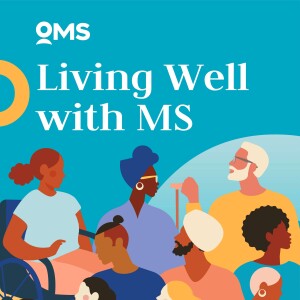
Wednesday Apr 17, 2024
Wednesday Apr 17, 2024
In this episode, we are sharing highlights from our webinar, ‘Your opportunity to ask a qualified nutritional therapist about the Overcoming MS diet’ with Sam Josephs. Sam is a qualified nutritional therapist and Overcoming MS facilitator. In this episode, she discusses fasting patterns, tips for Overcoming MS-friendly meals on a budget and how to prevent weight loss. Keep reading for the key episode takeaways. Topics and Timestamps: 02:40 Can fasting help you reduce inflammation? 05:58 How much calcium is safe for you with high doses of vitamin D3? 08:11 Comparing benefits: flax oil supplements vs Omega-3 rich foods. 09:40 Can you have coconut or meat in the absence of Overcoming MS-friendly options? 11:25 Vitamin D2 vs D3 in fortified foods. 13:40 The link between eating dairy and osteoporosis. 16:48 The different types of saturated fats. 19:11 Can you ever eat fast food or processed foods? 22:12 Can you eat egg yolk or meat occasionally? 25:59 How much vitamin K should you have to prevent calcium buildup? 27:16 Is there a limit to the number of egg whites you can eat? 28:18 Can you eat lean meat on the Overcoming MS diet when trying to put on weight? 30:12 What minerals can you take to help with spasticity and tight muscles? 21:46 Tips for cooking Overcoming MS-friendly meals with a busy schedule. 36:48 Snacks to help you prevent weight loss on the Overcoming MS diet. 40:23 Alternatives to flax oil for Omega-3 supplementation 41:59 The benefits of a variety of whole grains for your gut bacteria 44:20 Budget tips for cooking Overcoming MS-friendly meals Selected Key Takeaways: Highly processed foods have negative health implications. 20:11 “Highly processed foods sometimes irritate the gut lining, which can affect our friendly bacterial populations. We're only just starting to understand the detrimental effects of some of these unknown food chemicals, not to mention high levels of salt, and high levels of sugar, all of which on a metabolic level are not good for us. Salt can cause excretion of calcium, which we're trying to retain. The sugars can cause metabolic issues, things like becoming overweight and obese.” A variety of whole grains is beneficial for the gut. 42:35 “It’s important not to rely too heavily on one grain or another. But to keep that variety because each grain has a different nutritional profile and will be broken down differently in the body. The more variety you have with your grains, the more you're encouraging healthy bacteria which indirectly calms MS activity so think about different rice: what about wild rice [or] the red rice? What about buckwheat? Have you tried quinoa yet?” There are multiple intermittent fasting methods to suit your lifestyle. 03:05 “Some people do the five-two diet, which involves eating normally five days of the week, and then just eating dinner on two days of the week, consuming much lower calories. You could fast overnight for 16 hours and then eat your food in a much smaller window of eight hours. It could be done as a water fast where you don't eat anything at all, and just drink water one day a week or a couple of days a month.” Want to learn more about living a full and happy life with multiple sclerosis? Sign up to our newsletter to hear our latest tips. More info and links: Sam Josephs has been featured on S1E3, S1E4, and S5E8 Check out Overcoming MS-friendly recipes Create your Overcoming MS Meal Plan Read Sam’s bio New to Overcoming MS? Visit our introductory page Connect with others following Overcoming MS on the Live Well Hub Visit the Overcoming MS website Follow us on social media: Facebook Instagram YouTube Pinterest Don’t miss out: Subscribe to this podcast and never miss an episode. Listen to our archive of Living Well with MS episodes here. If you like Living Well with MS, please leave a 5-star review. Feel free to share your comments and suggestions for future guests and episode topics by emailing podcast@overcomingms.org. Make sure you sign up to our newsletter to hear our latest tips and news about living a full and happy life with MS. Support us: If you enjoy this podcast and want to support the ongoing work of Overcoming MS, we would really appreciate it if you could leave a donation here. Every donation, however small, helps us to share the podcast with more people on how to live well with MS.
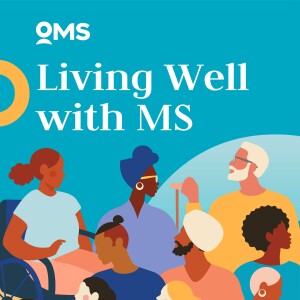
Wednesday Apr 03, 2024
Wednesday Apr 03, 2024
Welcome to Living Well with MS, where we are pleased to welcome Sue Tibbles as our guest! Sue is an MS nurse and Overcoming MS facilitator who follows the Program. She is a qualified mindfulness teacher with a Master’s in Mindfulness from the University of Aberdeen. In this episode, she discusses tips for setting up a mindfulness practice, the role of stress and MS and shares some different mindfulness practices. Watch this episode on YouTube here. Keep reading for the key episode takeaways. Topics and Timestamps: 01:19 Sue’s stress-related MS diagnosis. 05:59 Navigating the difficulties of starting a mindfulness practice. 09:24 Effective ways you can settle the mind. 10:54 Practical tips for setting up your own mindfulness practice. 13:05 The role of an MS Nurse. 16:23 How to talk to your healthcare provider about the Overcoming MS Program. 18:52 Tips for when you are newly diagnosed or new to the Program. 24:51 The impact of stress in MS flares. 30:21 Formal vs informal mindfulness practices. Selected Key Takeaways: Don't stress if your healthcare professional initially dismisses the Overcoming MS Program 17:03 “I think it's a really nice opportunity for you to be able to teach [your healthcare professional about the Program]. If you come across resistance from them, I don't think there's an awful lot of point in becoming resentful about that. That's not going to achieve anything at the end of the day. There is lots of support within [the] Overcoming MS [community], if you're not getting it from your MS nurse or your neurologist. Although I think a lot of healthcare professionals are becoming better at being open about these things.” We can’t control what’s going on outside of us, but we can control our response to it 24:51 “I will regularly say to my patients, 'We can't change what's going on outside of us, we can't change that stressful situation at work, we can't change the builders coming in and messing up. We can't change any of that, but we can change our response to it.’ That's what we need to work on, and mindfulness helps with that.” There are no downsides to following the Overcoming MS Program 34:30 “When I was first diagnosed and discovered the Program, I remember thinking to myself, ‘What have I got to lose? By eating a bit more healthily, doing a bit more exercise, [and] doing a bit of mindfulness, what have I got to lose? What is there to gain?’” Want to learn more about living a full and happy life with multiple sclerosis? Sign up to our newsletter to hear our latest tips. More info and links: Read the Overcoming Multiple Sclerosis book Learn more about Professor Jelinek’s story Listen to S5E13 Meditation tips with Professor Craig Hassed Find out more about the Overcoming MS Pop-up Tour in 2024 Check out one of our guided meditations Read Sue’s bio New to Overcoming MS? Visit our introductory page Connect with others following Overcoming MS on the Live Well Hub Visit the Overcoming MS website Follow us on social media: Facebook Instagram YouTube Pinterest Don’t miss out: Subscribe to this podcast and never miss an episode. Listen to our archive of Living Well with MS episodes here. If you like Living Well with MS, please leave a 5-star review. Feel free to share your comments and suggestions for future guests and episode topics by emailing podcast@overcomingms.org. Make sure you sign up to our newsletter to hear our latest tips and news about living a full and happy life with MS. Support us: If you enjoy this podcast and want to support the ongoing work of Overcoming MS, we would really appreciate it if you could leave a donation here. Every donation, however small, helps us to share the podcast with more people on how to live well with MS.
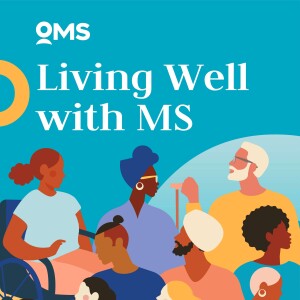
Wednesday Mar 20, 2024
Wednesday Mar 20, 2024
Welcome to Living Well with MS, where we are pleased to welcome Dr Stefano Pluchino as our guest! Dr Pluchino is a Professor of Regenerative Neuroimmunology at Cambridge University and has been researching stem cell therapy for progressive MS. In this episode, Dr Pluchino speaks to Geoff about what advanced cell therapy is, the success of his phase one trial and what the future of DMTs looks like indicating what people with MS may experience. Watch this episode on YouTube here. Keep reading for the key episode takeaways. Topics and Timestamps: 01:31 Dr Pluchino’s background and research into stem cell therapy for progressive MS. 02:52 The difference between types of MS. 05:09 Navigating DMT options for progressive MS. 08:40 Dr Pluchino’s advanced cell therapy research trial: The success of phase one and plans for phase two. 21:05 How advanced cell therapy compares to HSCT or bone marrow transplants. 26:02 What it means for the future of DMTs. 33:39 How you can be part of groundbreaking MS research and trials. Selected Key Takeaways: There are nuances in types of MS beyond ‘relapsing’ or ‘progressive’. 04:23 "It is becoming more complex between active and non-active types of primary and secondary progressive MS where activity is attributed to other episodes. Clinical episodes of disease or radiologically evident episodes of disease, which can be identified by the use of contrast agents at the time of the MRI. So, they are very complex very heterogenous types of disease, with or without activity, which inevitably undergo accumulation of neurological deficits.” The next generation of DMTs will target progression rather than relapses. 06:39 “What's becoming very interesting is that [over the last] few years, there is a general worldwide consensus that progressive MS is becoming and has become a clinical unmet need. The old MS world is concentrating on financing, funding and efforts towards stopping MS through the development of a new generation of DMDs which will eventually target progression rather than relapses.” The future of advanced cell therapy research will look at remyelination, reduction of inflammation and neuroprotection. 19:10 "There is space for assessing whether a proportion of the injected cells [can] differentiate in vivo into new myelin-forming cells. There is a space to assess whether some of the cells [can] increase the survival of neurons in the brain. There is space to assess whether the transplanted cells [can] reduce the type of inflammation which characterises progressive MS, which is what we call a smouldering inflammation. These highly diffuse homogeneous, low-level activations of microglia (immune cells of the central nervous system) and astrocytes (star-shaped cells that hold nerve cells in place) might be reduced by means of advanced cell therapy and the reason why I am specifically alluding to these three major biological mechanisms of disease, remyelination, reduction of inflammation and neuroprotection is because we have managed to identify each of these mechanisms in clinically relevant animal disease models in the last 25 years. So, there is [an] expectation that a clinical trial designed in a way that will allow us to establish the efficacy of the treatment will reveal what we have established already in one of these models.” Want to learn more about living a full and happy life with multiple sclerosis? Sign up to our newsletter to hear our latest tips. More info and links: Video on Early-stage stem cell therapy trial shows promise for treating progressive MS Dr Pluchino’s website Dr Pluchino’s bio If you have progressive MS you may be eligible for the Octopus trial Learn about HSCT from Professor Richard Burt in Season 5 Episode 25 Read about the Shinya Yamanaka and John Gurdon’a Nobel Winning iPSC technology Find out more about the latest research in progressive MS from the International Progressive MS Alliance New to Overcoming MS? Visit our introductory page Connect with others following Overcoming MS on the Live Well Hub Visit the Overcoming MS website Follow us on social media: Facebook Instagram YouTube Pinterest Don’t miss out: Subscribe to this podcast and never miss an episode. Listen to our archive of Living Well with MS episodes here. If you like Living Well with MS, please leave a 5-star review. Feel free to share your comments and suggestions for future guests and episode topics by emailing podcast@overcomingms.org. Make sure you sign up to our newsletter to hear our latest tips and news about living a full and happy life with MS. Support us: If you enjoy this podcast and want to support the ongoing work of Overcoming MS, we would really appreciate it if you could leave a donation here. Every donation, however small, helps us to share the podcast with more people on how to live well with MS.
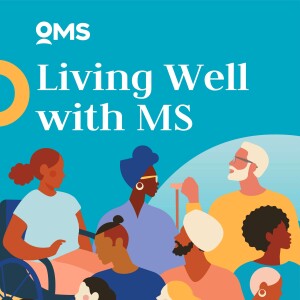
Wednesday Mar 06, 2024
Wednesday Mar 06, 2024
Welcome to Living Well with MS, where we are pleased to welcome Laura Crowder as our guest! Laura is a health coach and recently joined the Overcoming MS team as an Overcoming MS facilitator. In this episode, she talks to Geoff about what the ‘Change your life for life’ pillar means, how to make lifestyle changes easier to adopt and the importance of looking at your overall lifestyle. Watch this episode on YouTube here. Keep reading for the key episode takeaways. Topics and Timestamps: 01:02 Intro: Laura’s MS diagnosis. 02:08 Laura’s new role as an Overcoming MS facilitator. 03:48 Change your life, for life: What it means and how you can implement it. 08:18 How finding your deep ‘why’ makes lifestyle changes easier to adopt. 13:40 How you can feel empowered by following the Overcoming MS Program. 15:28 The impact of reducing alcohol on your physical and mental health. 25:48 What it means to feed the soul and the body. Selected Key Takeaways: Positive lifestyle changes can have immediate health effects. 05:08 “The minute I read [the Program was] evidence based, I thought, ‘I've got to read this.’ I read the entire book, and I jumped straight in. I implemented the diet and the vitamin D straight away, I couldn't do much about the exercise at the time, because I was still off my feet. Eventually, I started walking and then running. It was brilliant. I felt the effects instantly, I think because my previous lifestyle was so poor.” Some people find reducing alcohol consumption can have a positive impact on mental and physical health. 17:05 “Karen Law speaks about this in the Overcoming MS Handbook about how she just noticed that her stress response was better without alcohol in the mix. I think that was probably quite a significant part for me as well. My running improved hugely, I actually completed my first marathon last year, and just my health in general [improved]. So, for me, I decided that I didn't want to start drinking again.” Our health is impacted by our overall lifestyle. 27:00 “Our health is not just what we eat, it isn't just exercise [or] supplementation. Things like our career, relationships and finances, these aspects of our lives are so important in terms of nourishing us. If we're dealing with conflict or unresolved issues, or if we have got very destructive or negative relationships in our lives, that's going to have a really adverse effect on our health, even if we're eating all the superfoods in the world.” Want to learn more about living a full and happy life with multiple sclerosis? Sign up to our newsletter to hear our latest tips. More info and links: Check out our upcoming Overcoming MS events Read the ‘Change Your Life for Life’ chapter in the Overcoming MS book or the Overcoming MS Handbook Watch charity founder Linda Bloom’s story of hope Find out more about spiritual and health teacher Caroline Myss Read Laura’s bio New to Overcoming MS? Visit our introductory page Connect with others following Overcoming MS on the Live Well Hub Visit the Overcoming MS website Follow us on social media: Facebook Instagram YouTube Pinterest Don’t miss out: Subscribe to this podcast and never miss an episode. Listen to our archive of Living Well with MS episodes here. If you like Living Well with MS, please leave a 5-star review. Feel free to share your comments and suggestions for future guests and episode topics by emailing podcast@overcomingms.org. Make sure you sign up to our newsletter to hear our latest tips and news about living a full and happy life with MS. Support us: If you enjoy this podcast and want to support the ongoing work of Overcoming MS, we would really appreciate it if you could leave a donation here. Every donation, however small, helps us to share the podcast with more people on how to live well with MS.
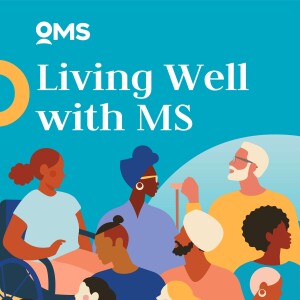
Wednesday Feb 21, 2024
Wednesday Feb 21, 2024
In this episode, we are sharing highlights from our webinar, ‘Mental Health and Wellbeing’ with Michelle Overton. Michelle is a qualified counsellor and Mental Health First Aid Instructor Trainer. She discusses the impact of life’s challenges on your mental health, coping mechanisms for stress and her top self-care tips. You can watch the original webinar here. Keep reading for the key episode takeaways. Topics and Timestamps: 01:03 Michelle shares her own mental health journey. 06:05 How does mental health shape your self-esteem and confidence? 08:27 The impact of life's challenges on your mental wellbeing. 11:00 Stress and how it can affect your DNA. 13:53 Shifting from unhealthy to healthy coping mechanisms. 19:14 Michelle’s top self-care tips for improving your mental health. 24:02 The power of listening. 25:46 How you can find ways to improve sleep and mindful practices. Selected Key Takeaways: Mental health impacts many aspects of life. 07:01 “Confidence can be gauged in new situations [by] learning new skills [or] it could be in a workplace. Self-esteem is how you value yourself on the inside. Our mental health will govern how we feel, how we think, how we behave and how we manage change. It will [also] govern how we make, sustain and end relationships.” Stress can impact our physical health. 10:35 “After you've been experiencing stress for more than two weeks, your body will start to kick out hormones. Your double helix is your DNA and at the bottom of it, you've got the bottom of your shoelace strings that keep it together at the bottom, when the hormones are being kicked out from the stress, what happens is the shoe lay strings get corroded, and it comes undone. And this is when we start to get rogue DNA going around. And that's why it's been linked to being carcinogenic." Find what works for you and your mental health. 25:52 “It's finding what's right for you. I find talking has been a really helpful space for me, whether that's in therapy, or whether it's support services. Making sure that you're hydrated as well. Water can be a very simple thing that can really help instantly.” Want to learn more about living a full and happy life with multiple sclerosis? Sign up to our newsletter to hear our latest tips. More info and links: Watch the original webinar 5 Ways to Wellbeing from Mind Follow Michelle on social media on LinkedIn or Instagram Read Michelle’s bio Study: Effects on DNA Damage and/or Repair Processes as Biological Mechanisms Linking Psychological Stress to Cancer Risk New to Overcoming MS? Visit our introductory page Join a Circle and connect with others following Overcoming MS on the Live Well Hub Visit the Overcoming MS website Follow us on social media: Facebook Instagram YouTube Pinterest Don’t miss out: Subscribe to this podcast and never miss an episode. Listen to our archive of Living Well with MS episodes here. If you like Living Well with MS, please leave a 5-star review. Feel free to share your comments and suggestions for future guests and episode topics by emailing podcast@overcomingms.org. Make sure you sign up to our newsletter to hear our latest tips and news about living a full and happy life with MS. Support us: If you enjoy this podcast and want to support the ongoing work of Overcoming MS, we would really appreciate it if you could leave a donation here. Every donation, however small, helps us to share the podcast with more people on how to live well with MS.
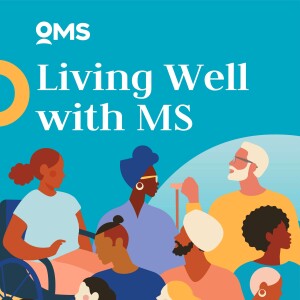
Wednesday Feb 07, 2024
Wednesday Feb 07, 2024
Welcome to Living Well with MS, where we are pleased to welcome Yasmin Neves as our guest! Yasmin is an HR professional and recently joined the Overcoming MS team as a facilitator through our ‘Train the Trainer’ programme. In this episode, she talks to Geoff about topics to help you with your work: navigating work with MS, how to talk to your employer about your MS, taking time off work for MS and the pros and cons of being self-employed after an MS diagnosis. Watch this episode on YouTube here. Keep reading for the key episode takeaways. Topics and Timestamps: 01:11 Intro: Yasmin’s MS journey. 04:10 Yasmin's new role as an Overcoming MS facilitator. 08:14 Navigating your work with MS: when and how you share your diagnosis with your employer. 13:40 Job interviews and MS: should you disclose or not disclose? 18:50 Taking time off or leaving work with MS: practical considerations for you to think about. 26:32 Self-employment after an MS diagnosis: weighing up the pros and cons. Selected Key Takeaways: All the adjustments you can ask your workplace for. 17:23 “In terms of adjustments whilst you're at work, it could be adjusting your working hours, it could be adjusting to working from home more or working at a different location. It could be changing your setup or how you sit on a chair or at your desk. The list is endless. They have to be tailored to your MS, how your symptoms affect you and what is needed as [part of the] job. It's all about making sure that you are given the support for you and your role.” Keeping motivated and having a purpose when taking time out of work. 19:46 “How are you going to feel if suddenly you've got a whole year off? How are you then going to find your purpose? How are you going to keep motivated without having that thing in your life that maybe was once important? That can go either way.” Weighing up the pros and cons of working for yourself. 28:21 “Work-life balance is very important to me because I'm my own boss, I can decide my own diary. There are obviously cons because I don't get things like sickness benefits, which might be quite helpful with a condition like MS. But then I do get other perks, like I can decide who I work with. Stress is so important with this condition, if there is a client or a project that doesn't quite align with my purpose and it causes me stress, I'm fortunate enough that I can say actually, this isn't for me, and I can turn it away.” Want to learn more about living a full and happy life with multiple sclerosis? Sign up to our newsletter to hear our latest tips. More info and links: Listen to Yasmin's previous episode on the Living Well with MS podcast Want to adopt the Overcoming MS program over 6 months like Yasmin did? Get started on the 6 Months to Overcoming MS course on the Live Well Hub Check out all of the Overcoming MS books Sunflower Lanyard scheme for hidden disabilities Read Yasmin’s bio New to Overcoming MS? Visit our introductory page Connect with others following Overcoming MS on the Live Well Hub Visit the Overcoming MS website Follow us on social media: Facebook Instagram YouTube Pinterest Don’t miss out: Subscribe to this podcast and never miss an episode. Listen to our archive of Living Well with MS episodes here. If you like Living Well with MS, please leave a 5-star review. Feel free to share your comments and suggestions for future guests and episode topics by emailing podcast@overcomingms.org. Make sure you sign up to our newsletter to hear our latest tips and news about living a full and happy life with MS. Support us: If you enjoy this podcast and want to support the ongoing work of Overcoming MS, we would really appreciate it if you could leave a donation here. Every donation, however small, helps us to share the podcast with more people on how to live well with MS
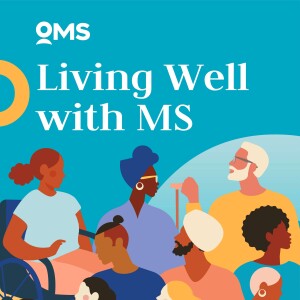
Wednesday Jan 24, 2024
Wednesday Jan 24, 2024
Welcome to Living Well with MS, where we are thrilled to bring you our 150th episode! Donations make our podcasts possible – so we’d like to take the opportunity of this milestone to ask if you could support us. As we mark this significant milestone, we are pleased to welcome Overcoming MS CEO, Alex Holden as our guest. Alex joined Overcoming MS in March 2023 and, during her time at the Charity, has completed a lot! In this episode, she talks to Geoff about meeting the Overcoming MS community, her experience at the ECTRIMS conference (the world’s largest research meeting in multiple sclerosis) and the exciting plans for the Overcoming MS charity! Watch this episode on YouTube here. Keep reading for the key episode takeaways. Topics and Timestamps: 01:17 Learn about Alex’s background, expertise and how she became CEO of Overcoming MS. 03:30 Alex’s view of the most compelling pillars of the Overcoming MS Program and changing your lifestyle based on evidence. 04:46 The mental and physical benefits of wild swimming. 05:56 Meeting the resilient and hopeful Overcoming MS community. 07:58 Abseil off the ArcelorMittal Orbit and other ways to support Overcoming MS. 10:22 How she keeps busy with her teenagers outside of work. 11:23 In-person Overcoming MS events taking place in 2024 you might like to attend. 14:15 Join the Live Well Hub – the Overcoming MS app – where over 2,000 community members are already sharing tips and advice. 17:43 Alex’s experience at the largest MS research conference in the world, the 2023 ECTRIMS conference (European and American Committees for Treatment and Research in Multiple Sclerosis). 21:06 Future plans for the Overcoming MS charity. Selected Key Takeaways: Put respect for individuals at the forefront.02:32 “Everybody needs respect, no matter what struggles they have, no matter what they've gone through. Understanding people's situations are so individual to them, I think that's shaped where I've gone with the rest of my career.” Your diet can contribute to your well-being and energy.03:42 “I've always been very interested in nutrition. At one point I did consider training as a nutritional therapist. So that's something that I'm really passionate about the importance of diet and how that contributes to your wellbeing rather than taking things out of your diet, how you look at what's contributing to energy.” One of the main reasons Alex was drawn to Overcoming MS was because of the community 06:42 "It is such a strong community and a very giving community. People who have had really quite devastating news are managing to give each other so many levels of support, tips, positivity and hope. To be part of that community and amongst those people who have that mindset, I feel very fortunate. As an organisation, we're really small. We are absolutely dependent on people who are in our Circles, our Ambassadors, and people fundraising for us. There are only twelve staff members, and most of us are part-time; the only way we can support a global community is through the community themselves.” Want to learn more about living a full and happy life with multiple sclerosis? Sign up to our newsletter to hear our latest tips. More info and links: Connect with others following Overcoming MS on the Live Well Hub Fundraise for Overcoming MS Meditate with Overcoming MS facilitator Phil Startin and others Watch the ECTRIMS conference highlights webinar with Brett Drummond Learn more about the Neuroepidemiology Unit at the University of Melbourne New to Overcoming MS? Visit our introductory page Visit the Overcoming MS website Read more about Alex Follow us on social media: Facebook Instagram YouTube Pinterest Don’t miss out: Subscribe to this podcast and never miss an episode. Listen to our archive of Living Well with MS episodes here. If you like Living Well with MS, please leave a 5-star review. Feel free to share your comments and suggestions for future guests and episode topics by emailing podcast@overcomingms.org. Make sure you sign up to our newsletter to hear our latest tips and news about living a full and happy life with MS. Support us: If you enjoy this podcast and want to support the ongoing work of Overcoming MS, we would really appreciate it if you could leave a donation here. Every donation, however small, helps us to share the podcast with more people on how to live well with MS.
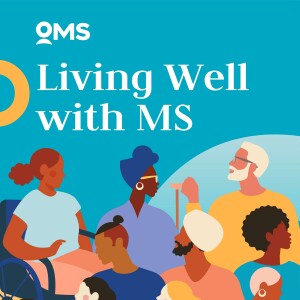
Wednesday Jan 10, 2024
Wednesday Jan 10, 2024
Happy New Year! Welcome to season 6 of Living Well with MS. We are excited to kick off the new season with the musicians of our fantastic, brand-new theme tune, Claire and Nev Dean. Claire was diagnosed with MS in 1999 and has been following the Overcoming MS Program since 2008, her husband Nev also follows the Program even though he doesn’t have MS. They generously wrote a new theme tune just for the Living Well with MS podcast. We really enjoyed speaking with them about their experience following the Overcoming MS Program, Claire’s passion for physical activity and hearing from Nev about being married to someone with MS. Watch this episode on YouTube here. Keep reading for the key episode takeaways. Topics and Timestamps: 01:08 Introducing Claire and Nev, musicians who follow the Overcoming MS Program. 04:27 Claire’s MS diagnosis. 06:58 The benefits of following the Overcoming MS Program even when you don’t have MS. 09:46 Online exercise sessions for people with MS. 12:29 Feeling motivated to follow the Overcoming MS Program. 14:21 Writing the new theme music for the Living Well with MS podcast. 17:17 The importance of exercise and core strength in MS. 19:29 Tips for navigating marriage when a partner lives with MS. 21:35 The importance of meditation, even if you only have one minute. Selected Key Takeaways: The Overcoming MS diet is healthy for everyone. 02:11 Nev: “When we got married, I was rather larger. When we started the diet, I did all the cooking. Obviously [as I was doing the cooking], I started eating the same diet as Claire because I had to cook food for her. Over the years I've lost over six and a half stone.” Following the Overcoming MS Program has stopped Claire’s progression. 12:25 Claire: “The year before we found Overcoming MS, we got married, and I was using a wheelchair. Since I've been following the [Overcoming MS] diet, I haven't got any worse and my progression has stopped.” Working out in bed is a viable option. 17:17 Claire: “During lockdown, the MS Centre was closed, and I remember my uncle said to me I could do crunches. I just lay in bed, and I worked on my stomach muscles. I went from 20 [crunches] a day up to 300. I've continued to work on my stomach and my abs. Since then, I've started on the pull-up bar, and I do that every morning.” Want to learn more about living a full and happy life with multiple sclerosis? Sign up to our newsletter to hear our latest tips. More info and links: Read more about Claire and her online Zoom workouts in our blog Nev and Claire on YouTube Nev and Claire on SoundCloud Cold water immersion for MS symptom relief New Pathways Magazine from MS-UK MOTOmed chair bike New to Overcoming MS? Visit our introductory page Connect with others following Overcoming MS on the Live Well Hub Visit the Overcoming MS website Follow us on social media: Facebook Instagram YouTube Pinterest Don’t miss out: Subscribe to this podcast and never miss an episode. Listen to our archive of Living Well with MS episodes here. If you like Living Well with MS, please leave a 5-star review. Feel free to share your comments and suggestions for future guests and episode topics by emailing podcast@overcomingms.org. Make sure you sign up to our newsletter to hear our latest tips and news about living a full and happy life with MS. Support us: If you enjoy this podcast and want to support the ongoing work of Overcoming MS, we would really appreciate it if you could leave a donation here. Every donation, however small, helps us to share the podcast with more people on how to live well with MS.
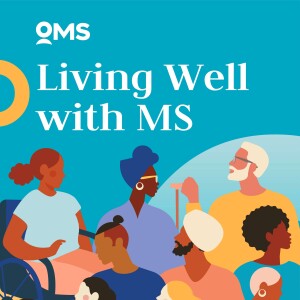
Wednesday Dec 13, 2023
Wednesday Dec 13, 2023
Welcome to Living Well with MS, where we are pleased to welcome Audrey Zannese as our guest! Audrey is a mindfulness expert living with MS and specialises in the relaxation method, sophrology. This practice has helped her to live well with MS. She talks to Geoff about her MS journey, what sophrology is and the research behind it. At the end of the episode, Audrey gives a guided sophrology practice. Watch this episode on YouTube here. Keep reading for the key episode takeaways. Topics and Timestamps 01:19 Audrey’s MS journey. 05:25 Managing stress. 08:19 The origins of sophrology. 11:22 The aims and benefits of sophrology. 14:00 Audrey’s switch from research scientist to sophrologist. 18:43 The research into the positive effects of sophrology. 22:25 Guided sophrology practice. Selected Key Takeaways Sophrology is a stress-reduction technique. 06:14 “Sophrology is a uniquely structured mind-body practice that combines both Western relaxation methods and Eastern meditative practices. It can be used for personal development, enhancing performance, but also for improving health and well-being. It includes a variety of exercises that are accessible and easy to incorporate into your daily life. There are gentle body movements, breathing exercises [and] aspects of mindfulness and meditation.” The aims and benefits of sophrology practice. 11:22 “The aim of sophrology is to help you reconnect with yourself. Self-awareness of how you're feeling inside helps you build the capacity to regulate your internal state but also builds the capacity as you would find in mindfulness and meditation of acceptance and letting go when things cannot be changed. Through this work, as it is repetitive and very much a practice, you get to a place where you are feeling balanced in terms of your mind, body, and emotions.” Sophrology is a big part of how Audrey lives well with MS. 15:04 “I remember one day I came out of my flat, and I was so happy to be alive. I didn't feel [my] MS anymore. I wasn't scared, I knew I had everything in me to live my best life, in a way I had never been [able to] before when I was healthy. When I look back, I look with compassion, but I realise that through this journey, what it was to be happy.” Want to learn more about living a full and happy life with multiple sclerosis? Sign up to our newsletter to hear our latest tips. More info and links: Visit the Step into sophrology website The Sophrology Academy website Essential Guide to Tap into The Power of the Mind-Body Connection New to Overcoming MS? Visit our introductory page Connect with others following Overcoming MS on the Live Well Hub Visit the Overcoming MS website Follow us on social media: Facebook Instagram YouTube Pinterest Don’t miss out: Subscribe to this podcast and never miss an episode. Listen to our archive of Living Well with MS episodes here. If you like Living Well with MS, please leave a 5-star review. Feel free to share your comments and suggestions for future guests and episode topics by emailing podcast@overcomingms.org. Make sure you sign up to our newsletter to hear our latest tips and news about living a full and happy life with MS. Support us: If you enjoy this podcast and want to support the ongoing work of Overcoming MS, we would really appreciate it if you could leave a donation here. Every donation, however small, helps our charity to share how to live well with MS with more people.
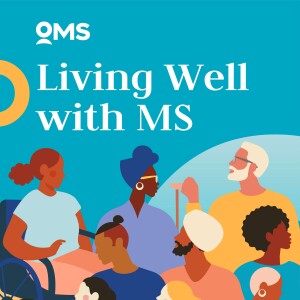
Wednesday Dec 06, 2023
Wednesday Dec 06, 2023
Welcome to Living Well with MS, where we are pleased to welcome Krystina Christiansen as our guest! Krystina is a filmmaker who has recently finished a documentary about an end-of-life letter she found, written by a man with MS. Overcoming MS wants everyone to live a full and healthy life with MS, but it is inevitable that everyone, with or without MS, will pass away. It is therefore unhelpful that death is often a taboo subject. Krystina talks to Geoff about healthy ways to think about your own mortality, her new film, ‘Dear Brandon’ and planning ahead for your end of life, which is something that everyone needs to consider. Keep reading for the key episode takeaways. Topics and Timestamps: 02:29 Krystina found an end-of-life letter from a man with MS on a mountain in Hawaii. 04:12 ‘Dear Brandon’ is a film about death and grief, but also hope and community. 10:41 Healthy ways to think about your own mortality. 12:31 Writing a will and planning your funeral. 14:55 Resources at the end of life. 18:00 Death doulas can help the dying and their families. 20:18 Death cafes are safe spaces to talk about mortality. 24:35 Follow along with Brandon’s story and Krystina’s films. Selected Key Takeaways: Talking about death and dying doesn’t have to be taboo07:03 “To know Brandon is to know someone who is going to die, he is on his deathbed. That's the social contract that you agree to when you become friends with him. I’d also like to point out that that's the social contract you have with everybody. It's just more obvious with him, I guess. I've learned that sometimes just talking about [death] does make it a bit easier for everyone.” Make a plan for your funeral and estate09:32 “Make sure that you plan for your death if it is something that we have the opportunity to do. Planning makes not only your end of life a bit smoother, but also for the ones you leave behind. It makes their lives a lot better and allows them to just focus on grieving versus dealing with the business of death.” Death is not an emergency19:05 “If you have someone in the home who passes away, you don't have to call anyone immediately. You can take your time and be with your loved one. There is no rush. You can even have people come over and say goodbye in the home. You can prepare the body in the home, there are so many different options.” Want to learn more about living a full and happy life with multiple sclerosis? Sign up to our newsletter to hear our latest tips. More info and links: Learn more about Krystina’s work and “Dear Brandon” See the people and places Brandon’s letter reached Connect with others following Overcoming MS on the Live Well Hub Visit the Overcoming MS website Consider leaving a give to Overcoming MS New to Overcoming MS? Visit our introductory page Follow us on social media: Facebook Instagram YouTube Pinterest Don’t miss out: Subscribe to this podcast and never miss an episode. Listen to our archive of Living Well with MS episodes here. If you like Living Well with MS, please leave a 5-star review. Feel free to share your comments and suggestions for future guests and episode topics by emailing podcast@overcomingms.org. Make sure you sign up to our newsletter to hear our latest tips and news about living a full and happy life with MS. Support us: If you enjoy this podcast and want to support the ongoing work of Overcoming MS, we would really appreciate it if you could leave a donation here. Every donation, however small, helps us to share the podcast with more people on how to live well with MS.




